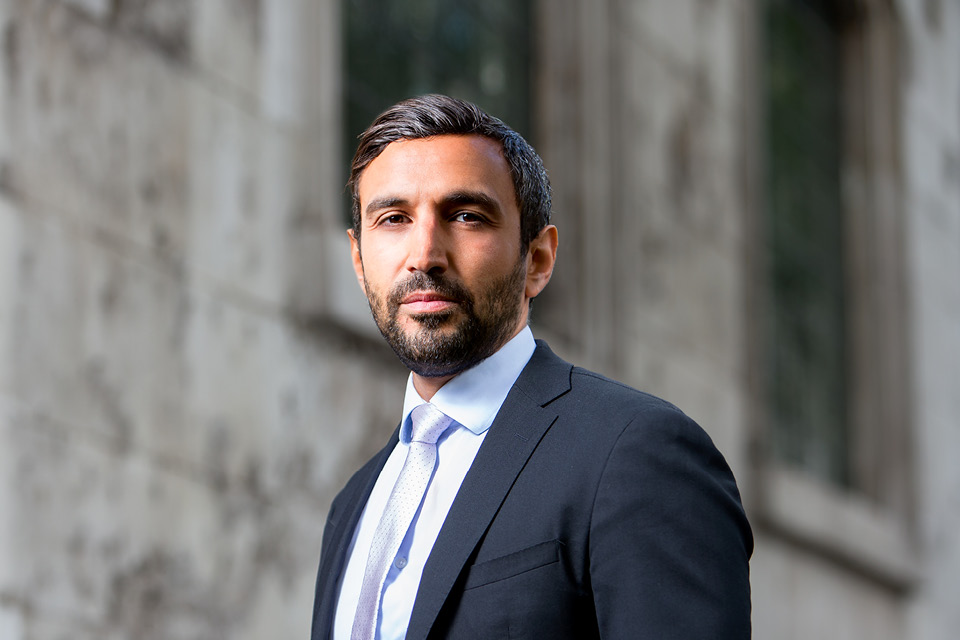Keele Alumni has represented some of the world’s largest sports organisations, events and athletes
Lawyer Zane Shihab graduated from Keele in 2001 and is now a partner and UK head of sports, media and entertainment in Armstrong Teasdale’s London office, Zane has negotiated numerous high-value sponsorship and supplier agreements and other event-related contracts for organisations including London Marathon, UEFA and The All England Lawn Tennis Club (Wimbledon).

Lawyer Zane Shihab has represented some of the world’s largest and most recognisable sports organisations, events and athletes. As partner and UK head of sports, media and entertainment in Armstrong Teasdale’s London office, Zane has negotiated numerous high-value sponsorship and supplier agreements and other event-related contracts for organisations including London Marathon, UEFA and The All England Lawn Tennis Club (Wimbledon). He has also drafted and advised on the agreements connected to high-profile Premier League football transfers, and has successfully represented well-known players in disciplinary proceedings brought by the Football Association.
In 2022, Zane was named among The Lawyer Hot 100, which recognised the most accomplished and relevant lawyers practicing in the nation today. Zane was chosen for the prestigious list after his advice on ticketing integrity ensured both the Wimbledon Championships and Euro 2020 went ahead and complied with covid regulations in England, and in the case of the Euros, across Europe where each country had its own rules in place.
Zane, who graduated from Keele in 2001 with a Law and Biology Dual Honours degree, said:
“To be honest, I had no idea what I wanted to do in terms of a career when I came to Keele. At the time I looked at those students that had their whole life mapped out ahead of them with a mixture of admiration and incredulity. In fact, when I arrived at Keele, I’d planned to do a dual honours degree in biology and English but, upon seeing a syllabus full of Chaucer, I altered my direction and chose law instead.
“What I was certain about was my love of sport; both law and biology could, theoretically, allow me to undertake a career in the sports industry in some capacity. Timing is everything and, in the early 2000s, a thing now known as ‘sports law’ was becoming a discipline in itself so, upon leaving Keele, I focussed solely on obtaining a training contract for a law firm that practised in this area. After much persistence and some relevant work experience, I was eventually lucky enough to receive an offer. Clearly, the law half of my degree was absolutely vital to opening this door and my subsequent career in sports law.”
During his time at Keele, Zane played for the University’s football team and has fond memories of his time spent in Staffordshire.
He said: “I arrived at the stunning grounds of Keele University in 1998, a Londoner who was very much wet behind the ears. Considering the micro-climate that Keele experiences, the Staffordshire weather ensured that it was not just my ears that were wet all year-round. My parents bid a tearful goodbye - sadness or joy, it was hard to tell and, clearly much more wily than myself, left me with a crate of beer with which to bribe affection from my fellow captives in Hawthorns, J Block. There embarked three years of lectures, hard work, football and socialising.”And giving advice to graduates, Zane said: “Don’t panic if, like me, you are not sure what you should yet focus on immediately following graduation. It sounds glib, but once you do work it out, hard work and perseverance will usually get you where you want to be.
“In relation to my specific career, I would advise that aspiring lawyers looking for an inroad into sports law should focus on work experience that will be beneficial to the sports sector, such as commercial, regulatory, litigation, etc. I would also suggest that they contribute to online blogs and draft articles which are sports law centric, whilst using social media to discuss the latest issues.
“Consider becoming a student member of the various sports law organisations and attend some of their meetings - most of the top sports lawyers attend these events. Lastly, you may like to consider a Masters, Diploma or PGC in Sports Law. All of the above is time consuming, and will come with some expense, but they all illustrate to prospective employers a certain level of commitment to the sector.”

